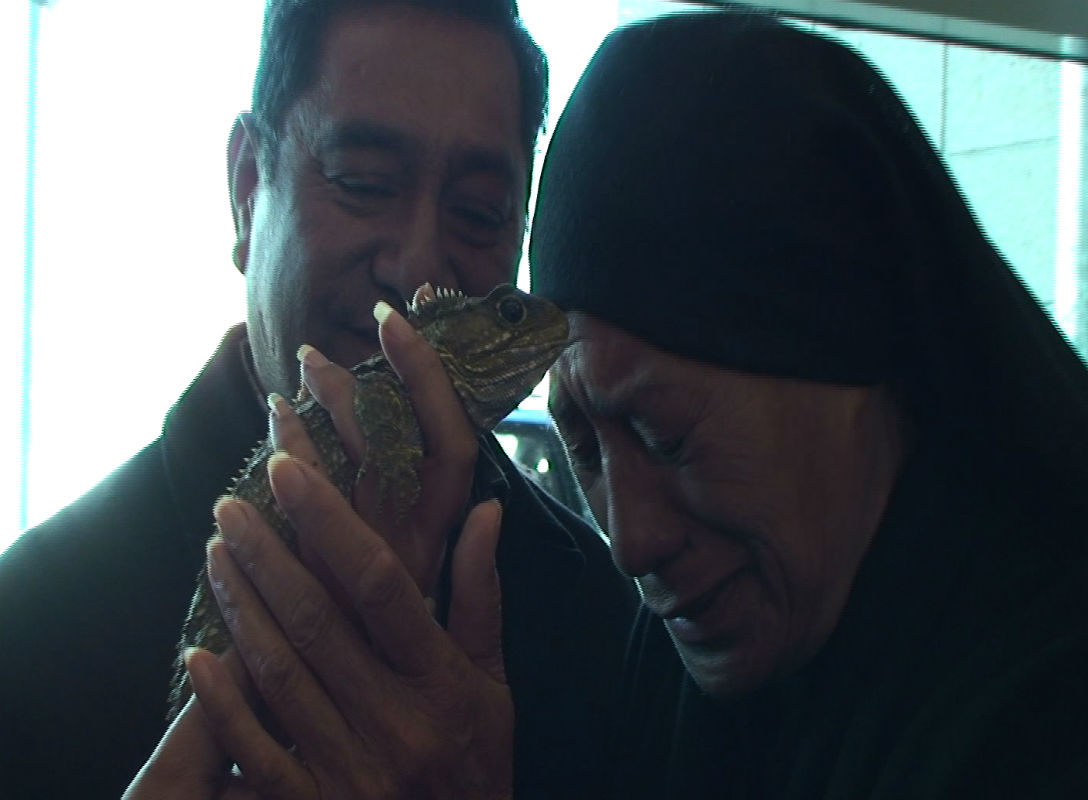Ngati Koroki iwi of Waikato welcome 60 tuatara to Maungatautari.
The largest translocation of tuatara ever attempted was successfully facilitated by Ngati Koata Iwi, kaitiaki (guardians) of the ancient reptiles last week. And the tuatara were formally welcomed at Hamilton Airport last week by a small group of kaumatua and whanau (family) who escorted them to Maungatautari Marae.
The largest translocation of tuatara ever attempted was successfully facilitated by Ngati Koata Iwi, kaitiaki (guardians) of the ancient reptiles last week.
And the tuatara were formally welcomed at Hamilton Airport last week by a small group of kaumatua and whanau (family) who escorted them to Maungatautari Marae.

Ngati Koata and DOC staff captured 260 tuatara from Takapourewa Nature Reserve (Stephens Island) and with the assistance of Air New Zealand and Doc, Koata handlers and tuatara travelled to five separate iwi locations.
These precious taonga were gifted from Ngati Koata to five other iwi as part of a translocation programme designed to reintroduce the tuatara to the mainland, supporting the initiative for survival of the species.
At the marae approximately 100 Ngati Koata and the tuatara received a powhiri (formal welcome) by Ngati Koroki.
The end of the powhiri signified the ceremonial passing of the responsibility for these tuatara from Ngati Koata to Ngati Koroki.
The Tuatara were then released at two locations on Maungatautari.
This special gift of tuatara from Ngati Koroki to the community of Waikato began a few years earlier when Ngati Koroki travelled to Nelson to meet with Ngati Koata to tono (a formal request) for the tuatara.
As part of the process of tono, Ngati Koroki met the environmental policies and requirements and provided evidence that they had appropriate facilities to protect and care for the taonga.
Tao Tauroa of Maungatautari marae expressed his gratitude on behalf of his iwi to Koata iwi, assuring them that they will cherish the taonga and honour the bond of kaitiakitanga between the two iwis. To Maori, kaitiakitanga is an honoured responsibility passed down from generation to generation.
Puhanga Tupaea, a Kuia of Ngati Koata, spoke passionately of the importance and meaning of kaitiaki.
“These taonga (tuatara) are special people; they are leaving their home and families behind, we need to remember that,“ Mrs Tupaea said.
To the young people of Koata who gathered to escort the tuatara to Maungatautari, she exclaimed “You are the kaitiaki!“
Tuatara indigenous to NZ were wiped out on the main islands by the introduction of mammals and other predators in the 1700’s. Takapourewa is home to 30,000 tuatara, approximately half of the country’s tuatara populace.
The tuatara may be available for public viewing once they have settled into their new habitat.
An 3-metre high, 47-kilometre stainless steel mesh fence surrounds Maungatautari protecting 3400 hectares of predator-free forestry inhabited by kiwi, kakahi and, now, tuatara.




